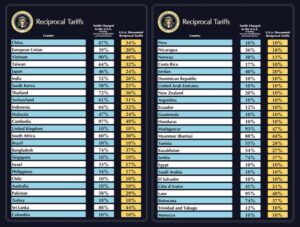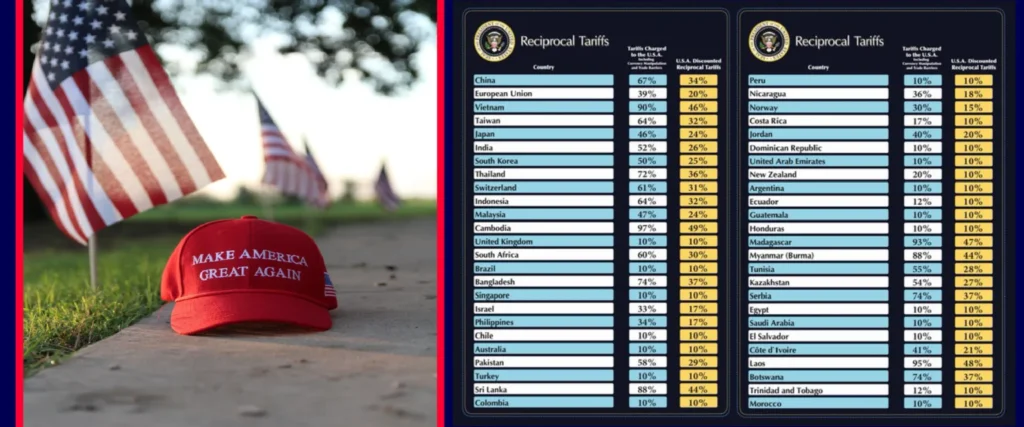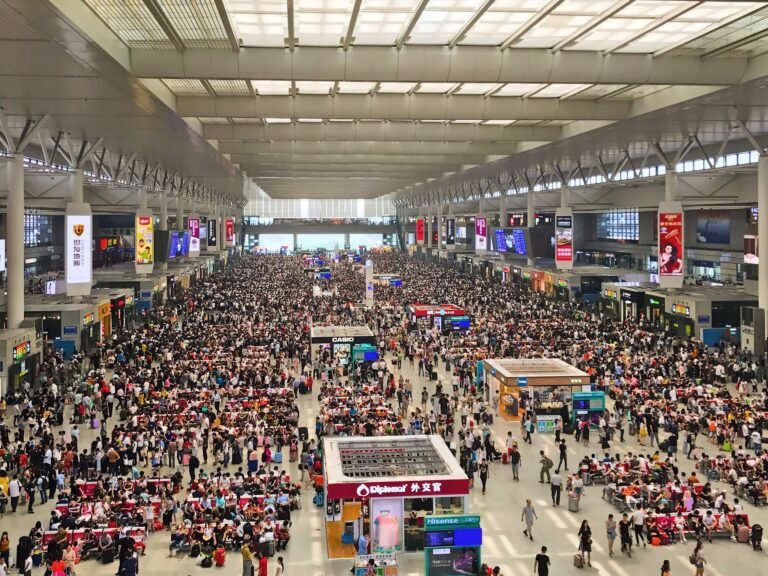10% Blanket tariffs from 185 Countries. Is USA heading for a Recession?
The United States has established Free Trade Agreements (FTAs) with 20 countries, aiming to enhance market access by reducing or eliminating tariffs, protecting intellectual property, and removing non-tariff barriers. Some of the countries with FTAs include Australia, Canada, Mexico, South Korea, and Singapore.
The legality of Trump’s recent tariffs has sparked debate. Some argue that they align with U.S. trade laws, citing provisions like the International Emergency Economic Powers Act (IEEPA), which allows the president to impose economic measures during emergencies. However, legal challenges have arisen, claiming that the IEEPA does not explicitly authorize tariffs. The broader implications of these tariffs are also under scrutiny, with concerns about their impact on global trade and inflation.
Trump’s Tariff-Chart includes 49% on Cambodia, 34% on China, 26% on India, 32% on Indonesia, 24% on Malaysia, 10% on Australia…..

While the U.S.A. builds 5 Commercial Cargo ships per annum. While China now builds 1700 / 51% of the worlds merchant ships in 2023. With the US imposing tariffs on China built cargo ships in port from any country- amounting to millions of dollars- the US consumers will foot the bill.
Rising Costs and Supply Chain Disruptions
With higher import taxes, companies that rely on foreign goods are facing increased expenses, many of which are being passed on to consumers. As a result, prices for products such as cars, electronics, and household essentials are climbing. Economists warn that these cost increases could dampen consumer spending and slow economic growth.
Economic Risks and Inflation Concerns
Experts caution that the tariffs may contribute to rising inflation, with some forecasts predicting that household expenses could surge by an average of $3,800 per year. The combination of higher prices and escalating production costs may also prompt businesses to reduce investments and hiring, increasing the risk of an economic downturn.
International Response and Market Instability
The tariff policy has sparked backlash from key trading partners, including China and the European Union, both of which have hinted at retaliatory measures. This tension is fueling uncertainty in global financial markets, leading to notable fluctuations in major stock exchanges.
Consumer Response and Financial Planning
Amid concerns over price hikes, financial advisors and industry leaders, such as entrepreneur Mark Cuban, suggest that consumers may want to stock up on essential goods before tariffs fully take effect. However, experts caution against panic buying, as it could further strain supply chains and drive prices even higher.
As the trade situation continues to evolve, both businesses and consumers must remain adaptable and informed to navigate the shifting economic landscape.












